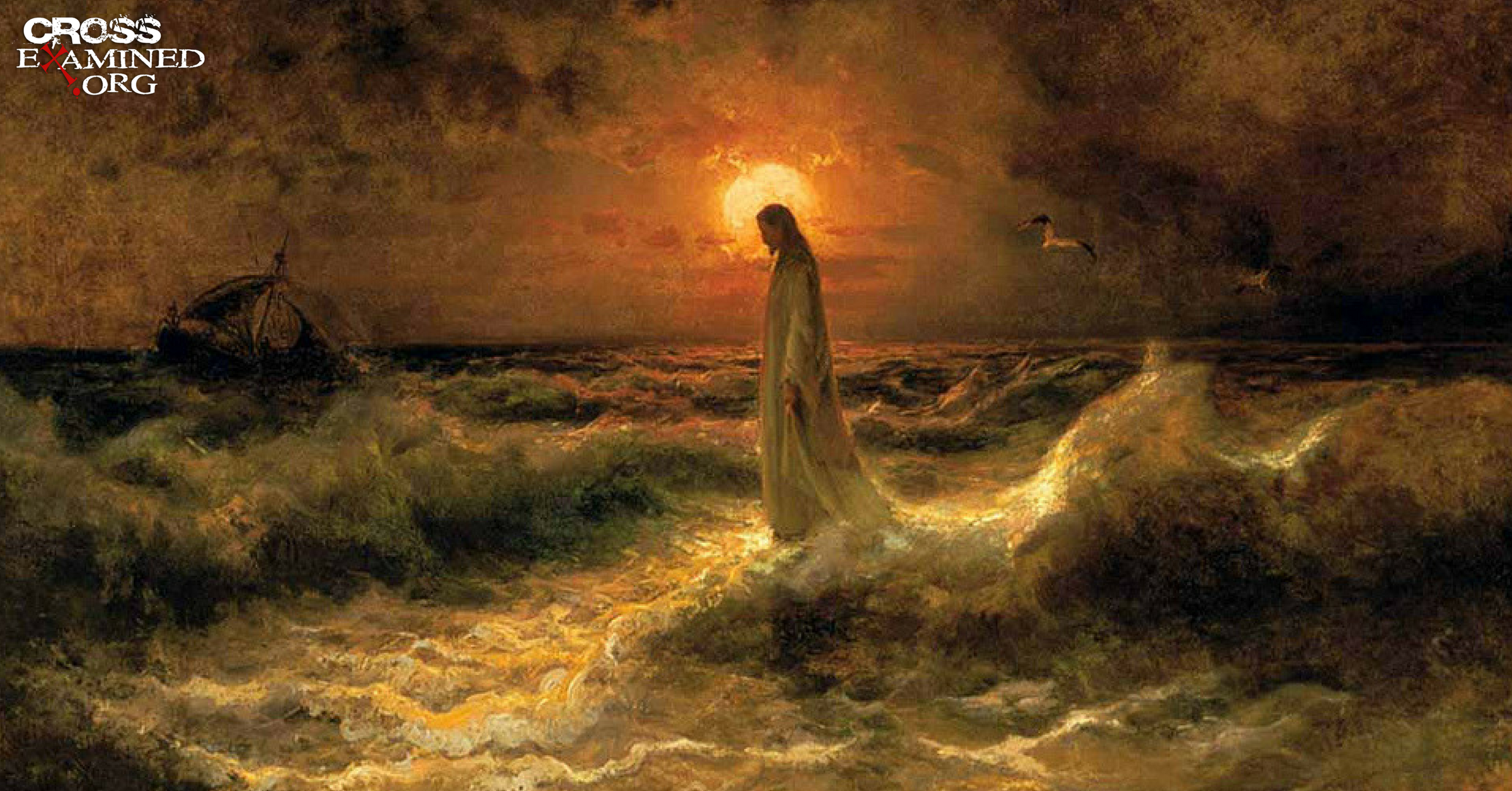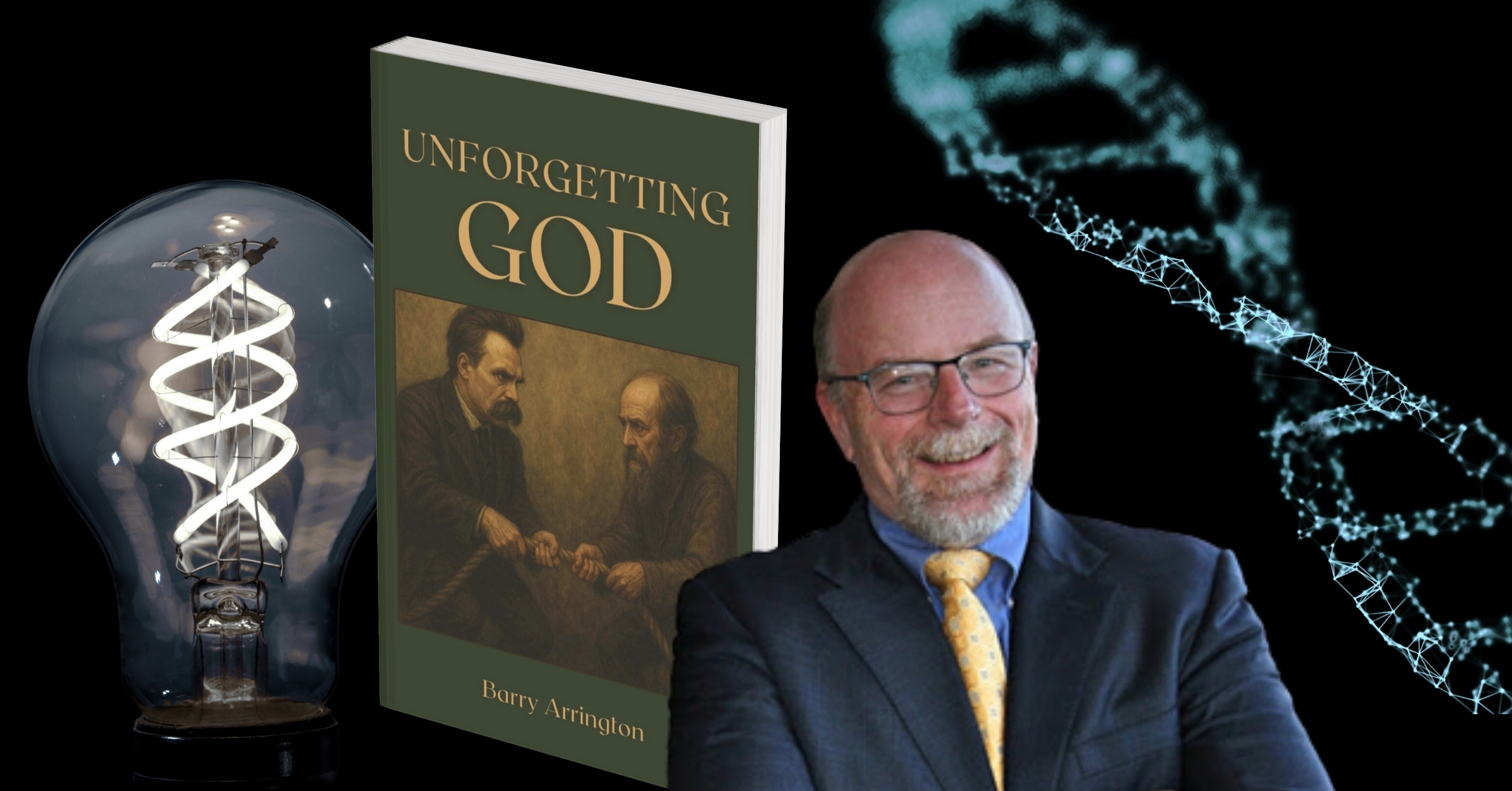3 Syllogistic Arguments For Jesus’ Deity
The Bible teaches in a variety of ways that Jesus Christ is God incarnate. In some places, The Bible couldn’t possibly be more explicit, and it boggles the mind how anyone who takes scripture as the inspired word of God could avoid any conclusion other than that Jesus is divine. In other places, it’s more subtle, and you need to be paying close attention to catch Jesus’ claim to divinity or one the epistles claims to divinity. In other words, there are explicit claims (on both Jesus’ and the epistle writers’ part) that Jesus is God, and there are implicit claims that Jesus is God.
When it comes to the more subtle and implicit claims, sometimes the conclusion of Christ’s divinity comes from piecing together biblical teachings about God and Jesus, which wouldn’t seem to say anything about Christ’s divinity when taken in isolation. These scriptural assertions can be used to form syllogistic arguments which result in the conclusion that Jesus is God. In my study of The Bible, I’ve come up with 3 such syllogisms. Let’s look at them below:
SYLLOGISM ONE
1: Yahweh is the only Savior of mankind.
2: Jesus is the Savior of humankind
3: Therefore, either The Bible contradicts itself or Jesus is God.
4: The Bible cannot contradict itself.
5: Therefore, Jesus is God.
This is a logically valid syllogism. This means that if the premises are true, then the conclusions follow. So, are the premises true or are they false? Let’s look at them.
The first premise states that Yahweh is the only Savior of mankind. This premise is backed up by Isaiah 43:11, which says; “I, even I, am The Lord, and apart from me there is no Savior.” This is Yahweh speaking through the prophet Isaiah. He says that He is The Lord and that apart from Him, there is no Savior. If Yahweh didn’t act to initiate our salvation, our souls would be doomed to Hell. No one can save us but God.
What about the second premise? It’s indisputable that Jesus is called our Savior. Titus 2:13 says “while we wait for the blessed hope-the appearing of the glory of our great God and Savior, Jesus Christ,” This verse clearly calls Jesus “Our great God and Savior.” That alone should end any debate that Jesus is God. Yet, cultists try to avoid the seemingly obvious conclusion by saying that Paul is referring to two different entities “Our Great God” on the one hand, and “our Savior, Jesus Christ” on the other.[1] Very well. For this argument to work, it doesn’t matter whether “Our great God and Savior, Jesus Christ” is referring to God and a merely human or angelic Jesus, or whether both “God” and “Savior” are both being applied to Jesus. Even the cultists will admit that Titus 2:13 undoubtedly calls Jesus our Savior.
1 John 4:14 says “We have seen as testify that The Father has sent His Son to be the Savior of the world.”
In his letter to the Philippians, the apostle Paul is contemplating his impending martyrdom. In Philippians 3, the apostle Paul tells his readers that a relationship with Jesus is far superior to anything else he has obtained in this Earthly life, even to the point of calling all of the goods he’s received “garbage” (verses 1-8). In verses 20-21, Paul says “But our citizenship is in heaven. And we eagerly await a Savior from there, the Lord Jesus Christ, who, by the power that enables him to bring everything under his control, will transform our lowly bodies so that they will be like his glorious body.” (emphasis mine)
In Acts 13:23, Paul also calls Jesus by the title “Savior.”
In fact, not much biblical defense for this premise even needs to be given. Even a casual reading of The New Testament will show even the lousiest exegete that Jesus died for our sins and rose from the dead, and this act atoned for our sins. This is what Jesus did to save us. No sect will deny that Jesus is the “Savior” any more than they’ll deny that The Father of Jesus is God.
This brings us to premise 3: Obviously, we’ve got a dichotomy here. If only God is the Savior if there is no savior besides God, and yet Jesus is our Savior, then what are our options? Either The Bible erroneously calls God the savior, or it erroneously calls Jesus the Savior. In other words, maybe The Bible is just plain wrong. On the other hand, perhaps The Bible isn’t wrong. Perhaps Jesus is God. I don’t see a third alternative.
Defense of Premise 4: The Bible cannot contradict itself.
The Bible cannot contradict itself. It is the word of God (2 Timothy 3:16, Proverbs 30:5). The Holy Spirit cannot inspire false teachings. To the person who doesn’t take The Bible as divinely inspired (atheists, agnostics,), this won’t be a problem. But for Jehovah’s Witnesses and Mormons, who do take The Bible as divinely inspired, this is not an option. But in that case, there’s only one possible alternative: Jesus is God.
SYLLOGISM TWO
1: Only God created the universe.
2: Jesus created the universe.
3: Therefore, either The Bible contradicts itself, or Jesus is God.
4: The Bible cannot contradict itself.
5: Therefore, Jesus is God.
This syllogism takes the same logical form as the previous one, so the validity of the syllogism’s logic shouldn’t be in question. Rather, we need to ask whether or not the premises are true. They are.
The first premise is backed up by The Old Testament. In Isaiah 44:24, God says “This is what the LORD says- your Redeemer, who formed you in the womb: I am the LORD, the Maker of all things, who stretches out the heavens, who spread out the earth by myself,” (emphasis mine). In this verse, God says that He spread out the Earth by himself. Other translations render it “I alone spread out the Earth.” In Job 9:8, Job says of God “He alone stretches out the heavens and treads on the waves of the sea.” Both of these verses (Isaiah 44:24 and Job 9:8) state that God alone is responsible for the stretching out of the heavens. This is an act of creation, whether you agree with Hugh Ross in that this is referring to the expansion of the fabric of space from The Big Bang point of origin, or whether you interpret this in its ancient near eastern context which would see this as God spreading out a solid dome over the flat Earth. Whether you take the concordist approach (that this is referring to the expansion of space from the big bang) or the non-concordist approach (that this is referring to God setting the solid dome over the Earth), the “stretching out of the heavens” is a creative act, and The Bible says that God is the sole entity responsible for it.
What about the second premise? John 1:1-3 says “In the beginning was the Word, and the Word was with God, and the Word was God. He was with God in the beginning. Through him all things were made; without him, nothing was made that has been made”. This prologue to John’s gospel echoes Genesis 1 (“In the beginning, God created the heavens and the earth” – 1:1). In the beginning, prior to the creation of the physical space-time realm, The Word alone existed. He was with God and was God Himself. The text goes on to say that The Word created all things and that nothing came into being except through The Word. John says essentially “If it exists, Jesus made it.” John asserts in so uncertain terms that Jesus is the Creator of everything that exists, everything!
In Colossians 1, the apostle Paul says the same thing: “The Son is the image of the invisible God, the firstborn over all creation. For in him all things were created: things in heaven and on earth, visible and invisible, whether thrones or powers or rulers or authorities; all things have been created through him and for him. He is before all things, and in him, all things hold together.”
Premise 2 is pretty well established. The Old Testament says that God created the universe alone! He had no helpers in the act of divine creation! And yet, The New Testament says clearly that Jesus created the universe.
This leads us to premise 3: “Either The Bible Contradicts Itself Or Jesus Is God.” Again, I don’t see a third option. If Jesus isn’t the same being as Yahweh, then either The New Testament is false in saying that Jesus created the universe, or the Old Testament got it wrong when it said Yahweh had no helpers in creation. Of course, there is a second option: Jesus and Yahweh are one in the same (cf. John 10:30).
Premise 4: If you really believe God breathed both testaments, then the former option is not acceptable. God cannot err. The Bible is God’s word. Therefore, The Bible cannot err.
Since the 4 premises are true, then so is the conclusion: 5: Therefore, Jesus is God.[2]
SYLLOGISM THREE
1: Anyone who accepts worship other than Yahweh is a blasphemer.
2: Jesus accepted worship.
3: Therefore, Jesus was either a blasphemer or He was Yahweh.
4: Jesus was not a blasphemer.
5: Therefore, Jesus is Yahweh.
Defense of Premise 1:
Revelation 4:11 says, “You are worthy, O Lord, to receive glory and honor and power; For You created all things, And by Your will they exist and were created.” This verse states that God is deserving of worship. In part, it is because we owe our very existence to Him. If God never decided to create us, we wouldn’t exist. We should praise and thank Him for allowing us to come into being and to enjoy a fulfilling relationship in eternity with Him, and even for goods in this lifetime (cf. James 1:17).
That God, and God alone, is worthy of worship is spelled out in the first of The Ten Commandments; “You shall have no other gods before me” (Exodus 20:3). This isn’t an arbitrary command of God. It isn’t, as skeptics of The Bible have said, that God is insecure and needs validation and assurance of His goodness. God is deserving and worthy of worship because of two things: we owe our existence to Him and ergo our praise (see Revelation 4:11), and also because God is what St. Anselm called “The Greatest Conceivable Being.” God is a being of which no greater can be conceived. God is great in every way one can be great, and He is great in those ways to the maximal extent. This is generally stated in Bible passages like 1 Chronicles 16:25 which says “For great is the LORD, and greatly to be praised; He also is to be feared above all gods.” and Jeremiah 10:6 which says “There is none like You, O LORD; You are great, and great is Your name in might.” and Isaiah 43:10 which says “‘You are my witnesses,’ declares the LORD, ‘and my servant whom I have chosen, so that you may know and believe me and understand that I am he. Before me no god was formed, nor will there be one after me.'” and Psalm 77:13 which says “Your way, O God, is holy; What god is great like our God?”
More specifically, it is an entailment from The Bible passages asserting God’s omnipotence (e.g Job 42:2, Jeremiah 32:17, Matthew 19:26), omniscience (Job 21:22, Psalm 139:1-4, Proverbs 15:3, Isaiah 40:13-1, Hebrews 4:13), omnipresence (Jeremiah 23:24, 1 Kings 8:27, Psalm 139:7-10, Acts 17:27), omnibenevolence (e.g John 3:16) which logically flows from his moral perfection (Deuteronomy 32:4).
So, the reason worship is a moral obligation is that we owe it to God. Why? Because He is literally the greatest thing in the universe! To direct our utmost adoration to anything else would be evil. God, being morally perfect, wills for us to direct our utmost devotion to the summum bonum (the highest good). It just so happens to be Him. If something else were the summum bonum, He would will we worship that, but He is the Greatest Conceivable Being. On top of that, we owe our very existence to Him. That we can enjoy anything is thanks to the creative act of God. Therefore, it is the hight of blasphemy for anyone other than the Greatest Conceivable Being who is our Creator to acclaim worship for Himself. As preachers frequently say: “Everyone worships something,” and that’s true. Everyone has something in their number-1-adoration-spot. The Greatest Being deserves that spot. It’s immoral for anything else to occupy that pedestal. This is why Paul and Peter freaked out when people tried to pay them homage (e.g. Acts 10:25-26).
Defense Of Premise 2:
Jesus definitely received worship, and unlike Paul and Peter, he never rebuked anyone for it. Even when Jesus was a baby, he received worshiped. As soon as the Magi laid eyes on the infant Christ, “they bowed down and worshiped Him” (Matthew 2:11). Of course, one may object that Jesus, being a baby, had no ability to rebuke the Magi for worshipping him. Therefore, this instance proves nothing. I agree, so let’s fast forward to Jesus’ adulthood. In the Triumphal Entry into Jerusalem, Jesus received worship: “So they took branches of palm trees and went out to meet him, crying out, ‘Hosanna! Blessed is he who comes in the name of the Lord, even the King of Israel!’” (Matthew 21:9; John 12:13). The gospels of Matthew and John do not record a single word of rebuke out of Jesus’ mouth for this. Hosanna is a plea for salvation and an expression of adoration. This is definitely a form of worship.
But perhaps the most startling example is found in John 20, where St. Thomas falls to his knees and cries out “My Lord and my God!”. Jesus never says “Don’t call me God, you fool! I’m merely a man just like you!” instead he says “Because you have seen me, you have believed. Blessed are those who believe but have not seen”. No rebuke, no warning. Jesus acts as if being called God and being bowed to is totally normal.
Defense Of Premise 3
Once again, we reach a dichotomy. Since only God is worthy of worship and Jesus received worship happily, it follows that either Jesus was blaspheming or He was simply accepting what was rightfully His. Which one is it? This leads us to premise 4:
Defense of Four: Jesus was not a blasphemer.
How do we know whether or not Jesus was blaspheming? If God raised Jesus from the dead, then He put His stamp of approval on everything Jesus said and did. He agreed with Jesus’ teachings and conduct. God would not have raised a liar or a lunatic. For the cultists who believe The Bible is God’s Word, one need only point out that The Bible teaches that Jesus rose from the dead.
This blog post isn’t intended to convince skeptics of The Bible, but believers of The Bible who deny the deity of Christ. When trying to convince atheists, agnostics, Muslims, or other non-Christians that Jesus is God, I take a different tactic. First, I apply the criteria of authenticity to sayings of Jesus in the gospels that entail that Jesus believed that He was divine. I do this, for example, in my blog post “A Quick Case For Jesus’ Divine Self-Understanding.” Then, I argue that if Jesus died on the cross and rose from the dead, then that means that Jesus was telling the truth. After all, the God of Israel would never resurrect a heretic and a blasphemer. So if Jesus rose from the dead, then God put His stamp of approval on Jesus’ teachings, including his teachings that He is divine. Obviously, the resurrection would be a miracle (i.e. an act of God). Atheists are right in claiming that science has proven resurrections don’t happen naturally. The more scientific knowledge we gain, the more we can be sure that a dead corpse isn’t just going to spontaneously regenerate. That only helps the Christian’s cause, as it keeps anyone from saying that if Jesus truly came back to life, there was some natural explanation behind it. If a corpse returns to life (especially one in as bad a shape as Jesus’), you can be sure that a miracle has taken place. Of course, that only raises another question: how do we know Jesus rose from the dead, apart from presupposing The Bible’s inspiration. Here is where I apply “The Minimal Facts Approach” which utilize the aforementioned “criteria of authenticity” mentioned above in examining both the New Testament documents as well as extra-biblical documents. I give a brief presentation of The Minimal Facts argument in my blog post “A Quick Case For Jesus’ Resurrection,” but I go into more depth in “The Minimal Facts Case For Jesus’ Resurrection PART 1” and “The Minimal Facts Case For Jesus’ Resurrection, PART 2”. This Easter, I’ll have an entire 10 part blog post series giving an exhaustive treatment of the subject.
However, since this is aimed, not at people who disbelieve The Bible, but people who believe The Bible (Christadelphians, Mormons, Jehovah’s Witnesses, etc.), then merely pointing out that The Bible teaches that God resurrected Jesus will be sufficient. You can simply quote the latter parts of the gospel and leave it at that.
Five: Therefore, Jesus is Yahweh
Given the truth of the premises, the conclusion follows.
CONCLUSION
For an argument to be successful, it must meet three criteria. It must have valid logic (i.e., it must follow the rules of inference such as modus ponens, modus tollens, hypothetical syllogism, disjunctive syllogism, etc.), it must have true premises, and it must have evidence to demonstrate the truth of the premises. If an argument meets these three criteria, then one is justified in believing the conclusion.
In order to refute an argument, one must either show that the argument’s conclusion doesn’t follow even if all the premises were true (i.e. the logic is invalid), or that at least one of the premises is false. There is no other way to refute an argument. For cultists to deny the deity of Jesus, I ask this question: which premise(s) of each of these arguments do you reject, and why do you reject it?
Notes
[1] For an explanation of why this maneuver doesn’t work, see James White’s book The Forgotten Trinity: Recovering The Heart Of Christian Belief.
[2] Oneness Pentecostals and other modalists use this exact same argument but come to a slightly different conclusion. They are correct in inferring from these two sets of scripture passages that Jesus is God, but that doesn’t at all entail that Jesus and The Father are the same person. The doctrine of The Trinity does not insert that The Father, Son, and Holy Spirit are different Gods who all worked together in creating the universe. Rather, the Trinity states that there is only one God but that this God consists of 3 persons (The Father, The Son, and The Holy Spirit). This argument supports the conclusion that Jesus is God and is of the same divine essence as His father, but it doesn’t prove that there is no distinction in their personhood. To make that conclusion is to beg the question in favor of modalism. Trinitarians and modalists both agree that Jesus and His Father are God (the same God). We just disagree on whether God consists of a plurality of persons or not. So, modalists should certainly use this argument to defend Christ’s deity, but they need to stop using it against Trinitarians.
Original Blog Source: http://bit.ly/2orQ7Ox












Leave a Reply
Want to join the discussion?Feel free to contribute!